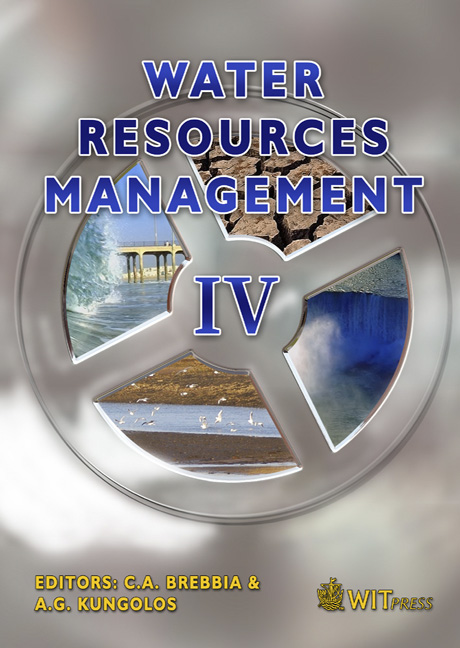Simulating Floods In Urban Watersheds: Hydrodynamic Modelling Of Macro, Micro-drainage And Flows Over Streets
Price
Free (open access)
Transaction
Volume
103
Pages
10
Published
2007
Size
702 kb
Paper DOI
10.2495/WRM070601
Copyright
WIT Press
Author(s)
M. G. Miguez, F. C. B. Mascarenhas, J. H. A. Prodanoff & L. P. C. Magalhães
Abstract
Floods in urban environments generally require a different mathematical treatment in order to achieve an adequate simulation technique. When dealing with these river catchments, it must be taken into account a set of features that distinguish such phenomena from rural basin flood flow simulations. It is quite usual that rainfall run-off spills out of the macro-drainage net, causing inundation at urban landscapes, like streets, squares, parks and so on. The hydrodynamic modelling in such situations must go towards a systemic approach. Several models available nowadays focus mainly on the macro-drainage net, evaluating only its capacity to convey flows resulting from heavy rainfalls. Usually, these models are not able to simulate the hydraulic behaviour of common urban landscapes. MODCEL is a hydraulic-hydrological distributed model that seems to apply to those situations where traditional approaches fail to simulate urban catchments flood flows. One of the major advantages of that model lies on the fact that streets may represent channels, squares and parks can be considered as water storage areas, microdrainage communicates to macro-drainage through gullies and manholes, trying to best reproduce what happens in urban watersheds subjected to flooding. In this work it is also presented a case study regarding a sub-basin in Rio de Janeiro state, Brazil. Model calibration made use of flood maps and river gauges data. The model was also validated for another rainfall input. Finally, some flood control measures were implemented in the model in order to compare results with present situation. The model showed to be a valuable tool for flood management. Keywords: urban environment, flood management, mathematical modelling.
Keywords
urban environment, flood management, mathematical modelling.





